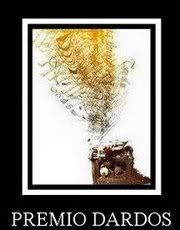Remember, you can download the whole pack from here.
Your Own Ideas and Other People's
Try to avoid vague remarks: Some say... or Many think... Who exactly says or thinks this? You should be able to cite at least one specific individual, and be able to quote what it is that he or she said or thought. If quoting from a book, it is important to supply a context for the quotation. Briefly introduce the new speaker in your text: "According to the anthropologist, Joseph Campbell...", or "In 1908, Freud argued in a letter to Jung that..." This will enable your reader to orient themselves. Then comes the quote (indented and single spaced). Then, explain to the reader the significance of the quote: state explicitly why you are quoting this. Point out any contradictions or interesting implications. Very often you will be able to use this 'exit' from the quote to form a bridge to the subject or point you will be dealing with next.
Good Style
Focus on the artwork, not the artist. An excellent way to approach any still or time-based work of art is to pretend it is anonymous. This will save you from wasting time and words on irrelevant biographical detail. Imagine that all you know about a work is the year and place in which it was made. How would you start researching its meaning? You would have to look first at the culture and historical events, the movements and ideas around it.
Avoid overstatement, as in the sort of sentence that begins, "Truly, Man Ray had entered a new realm of reality..." Had he bodily left the universe or had he just started making a different kind of photographic image? And what is that "Truly" doing there? If it is not true, why say it?
You may find yourself using "Truly" and other redundant constructions ("Hopefully", "Sadly") to make your writing sound more exciting. This is unnecessary. If the event or idea you are discussing is itself interesting or important, all you have to do is describe it and let it speak for itself.
Other forms of overstatement involve making gigantic claims; e.g. "Throughout history, man has endeavored..." or "Never before in the history of photography had..." Few of us actually know enough to make a claim like this. Chances are such statements are going to be plain wrong or at best redundant. Similarly avoid starting with assertions about human nature e.g.: "Man has always used violence as a spur to progress." Has the writer undertaken a comprehensive study of all known civilisations and cultures, at all periods of human history, or are they talking nonsense? What would you think? If in doubt try putting together an opposite statement: "Throughout history man has never tried to..."; "Many/Several times before in the history of photography..."; "Man has always regarded violence as a block to progress." If any of these strike you as at least as likely to be true as the original claim, then you will know you have to change your text.
The truth is that no culture is uniform; cultures are composed of competing and co-operating groups, who may differ radically in their views of their common situation. History tends to be produced through debate and disagreement (dialectic). Where there is slavery, for example, there will always be groups of people trying to abolish it.
Monday, March 02, 2009
Subscribe to:
Post Comments (Atom)








No comments:
Post a Comment